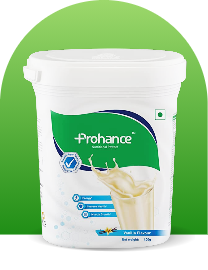
Food is the primary source of energy for our body; however, not many people are aware of how many calories their body needs in a day. Whether you wish to optimise your health, lose weight, or gain muscle mass, knowing how to calculate calories is key. For convenience, you can use our nutrition calculator for figuring out your daily calorie requirements.
People often think that calculating calories is only for fitness enthusiasts, but that’s not true. It is crucial for anyone who wishes to lead a healthy lifestyle or attain and maintain a certain weight. This is a simple guide on how to count calories and the benefits of doing this. You can learn how to fuel your body effectively and how health supplements can help you get the right nutrients by the end of this blog.
A calorie intake calculator is a simple digital tool to help you consume calories according to your total daily energy expenditure (TDTEE). A digital calorie calculator uses several factors, including age, weight, height, gender, and activity level, about a person for calculating calories. The calorie calculator is based on equations, like the Mifflin-St Joer equation, and uses data shared by you to estimate your calorie requirements. You can adjust the details you share in this calorie intake calculator based on your goals—gaining or losing weight.
By using such tools, you get clarity on your ideal calorie consumption in a day on average. This helps you make informed decisions about your health goals through dietary choices. However, it is important to remember that the daily calorie requirement you get from this calculator is general guidance, and other factors will also influence how much calories you need in a day. For precise healthcare guidance, it is always best to consult a doctor or a dietician.
A calorie is a unit of energy that the body obtains from food. The energy from food is used by your body to perform several involuntary functions, like breathing and blood circulation, and several voluntary functions, like walking and working. Since the food you consume is the primary source of energy, you need to ensure that you are eating an adequate type and amount of food to meet your health needs. Thus, in order to manage your nutrition (and consequently your health) effectively, it is crucial to understand your daily calorie requirements.
Here are a few compelling reasons why calculating calories is important:
Gender | Category | Approximate Body Weight (kg) | Calorie Requirements (Approx.) |
Men | Sedentary lifestyle | 55 | 1900 |
Men | Moderate lifestyle | 55 | 2400 |
Women | Sedentary lifestyle | 50 | 1660 |
Women | Moderate lifestyle | 50 | 2125 |
Pregnant women | – | 55+10 | 2020 |
Lactating mothers | 0-6 months | – | 2245 |
Lactating mothers | 6-12 months | – | 2200 |
Children | 1-2 years | 12.9 | 1110 |
Children | 4-6 years | 18.3 | 1370 |
Children | 7-9 years | 25.3 | 1710 |
Boys | 10-12 years | 34.9 | 2230 |
Girls | 10-12 years | 36.4 | 2060 |
Boys | 13-15 years | 50.5 | 2860 |
Girls | 13-15 years | 49.8 | 2410 |
Boys | 16-18 years | 64.4 | 3300 |
Girls | 16-18 years | 55.7 | 2490 |
Elderly Men | >60 years | – | 1740 |
Elderly Women | >60 years | – | 1530 |
Before you take the figures mentioned in the table above, it is important to understand that there are several factors that affect your daily calorie requirements; let’s break them down:
Lifestyle | TDEE |
Sedentary (little to no exercise) | BMR × 1.2 |
Lightly active (low intensity exercise/sports 1-3 days a week) | BMR × 1.375 |
Moderately active (moderate intensity exercise/sports 3-5 days a week) | BMR × 1.55 |
Very active (slightly high intensity exercise/sports 6-7 days a week) | BMR × 1.725 |
Super active (high intensity exercise/physical training) | BMR × 1.9 |
Try the Nutrition Calculator to get detailed insight on your daily meal
After figuring out how many calories you require in a day, you can adjust your calorie intake as per your health goals. In order to maintain your weight, you need to match your TDEE to your actual calorie intake.
In order to lose weight, you need to create a calorie deficit of about 500-1000. This means consuming fewer calories than your TDEE. However, if you plan on reducing your average daily calories, you must ensure that you are consuming plenty of nutrients, even if you are aiming to lose weight. This is important in order to avoid having detrimental health effects. For an effective calorie deficit that leads to weight loss without impacting your health, it is best you make small switches to nutrient-dense foods like fruits, vegetables, and whole grains at the beginning of your weight loss journey. Additionally, you must start avoiding high-caloric foods such as sugary soft drinks and highly processed food items. Here are some tips to help you reduce your calorie intake:
In order to gain weight, you need to increase your calorie intake by about 500-700. However, you should steer clear of foods with empty calories to increase your weight. Focus on consuming nutrient-dense foods to gain weight and enjoy other health benefits. It is usually not recommended that you decrease your physical activity to increase weight; it can become a recipe for disaster if you are working out excessively and not giving your body enough time for rest and recovery. Here are some tips for healthy weight gain through increased calorie consumption:
Consult Now & get personalized guidance to improve your health and wellbeing
Calculating calories can be beneficial for you if you do it right. However, it is tricky to avoid pitfalls that many people have to deal with while calorie counting. Listed below are some common pitfalls and tips on how to avoid them:
Calculating calories can help you monitor your health and achieve your fitness goals as well. You can use the formula mentioned above to calculate your TDEE, or you can use our easy-to-use nutrition calculator to understand your daily nutritional requirements. You may feel confused about how to calculate calories or use the knowledge here initially, but you can lead a healthy lifestyle if you avoid the common pitfalls, consume balanced meals, and workout regularly. Meet your nutritional needs by tracking your calories and consuming food mindfully.
